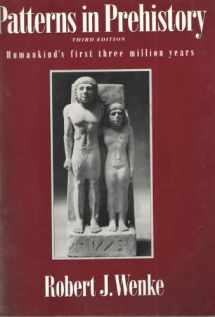
Patterns in Prehistory: Humankind's First Three Million Years
Book details
Summary
Description
Patterns in Prehistory takes an in-depth look at humankind's first three million years. From the origins of early hominids several million years ago to the evolution of the first great states and civilizations, this comprehensive survey of world prehistory also confronts important philosophical issues about the study of the past. The author reflects on the archaeological methods and theories of the 1960s and 70s while reviewing the methodological revisions of the 80s and 90s, relating the archaeological data from hundreds of sites to the great questions of prehistorical change. He focuses on the four great transformations in the history of our genus: the evolution of "culture" itself; the first appearance of "us, " Homo Sapiens; the evolution of agriculture; and the first appearances of cultural and social "complexity" in the form of the great civilizations of antiquity. Thoroughly revised and updated, this fourth edition incorporates the most recent archaeological discoveries and addresses the insights and limitations of the new wave of "post-processual" or "cognitive" archaeology.


We would LOVE it if you could help us and other readers by reviewing the book
Book review



